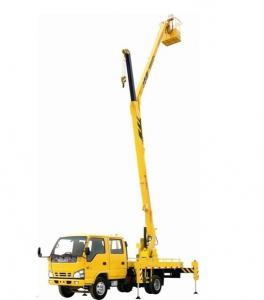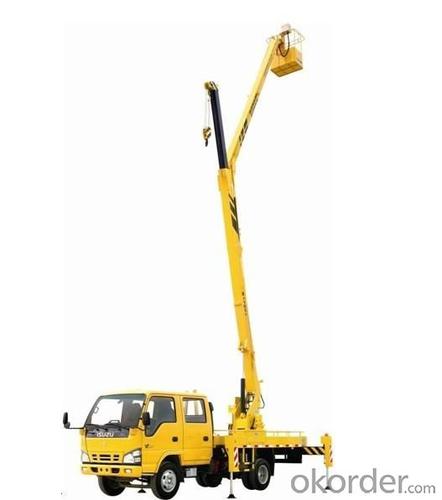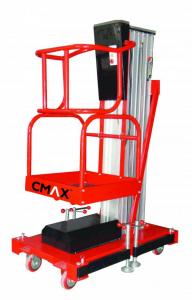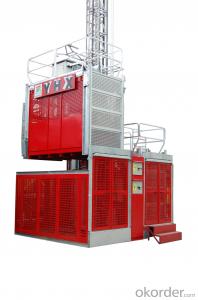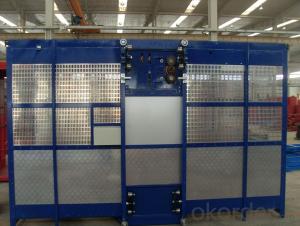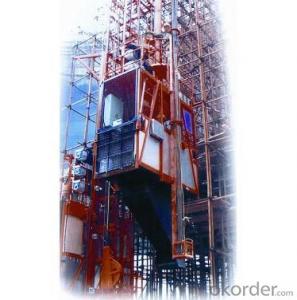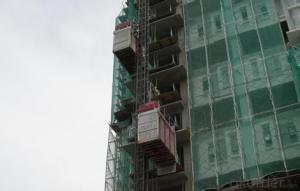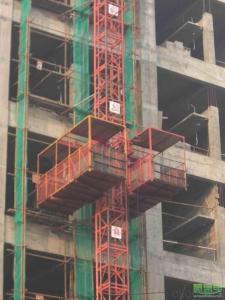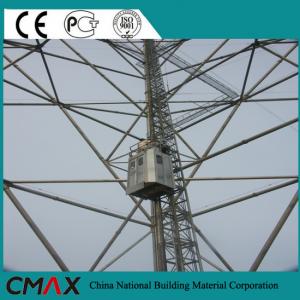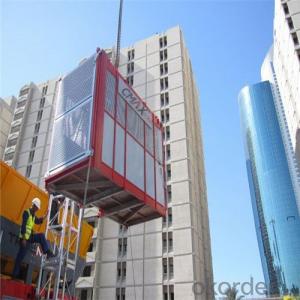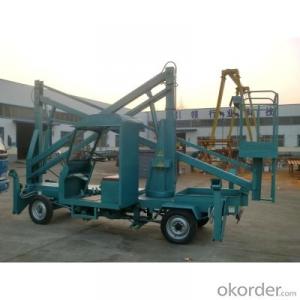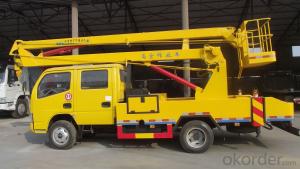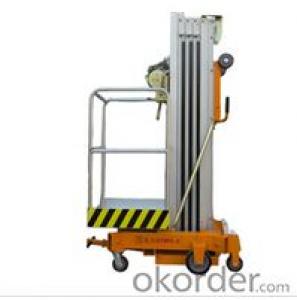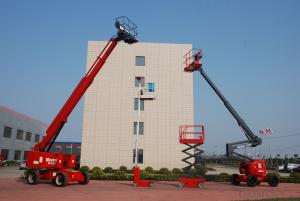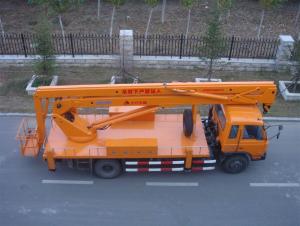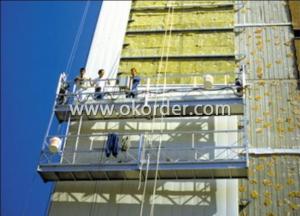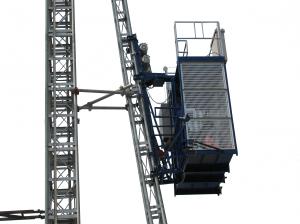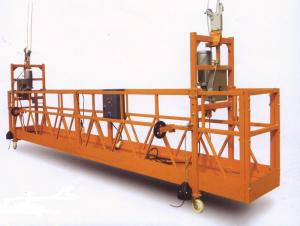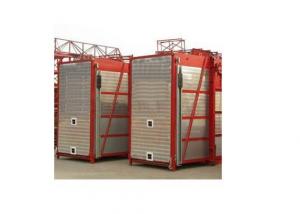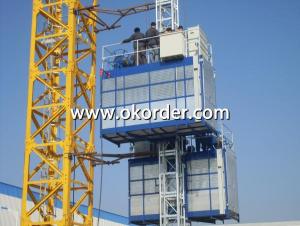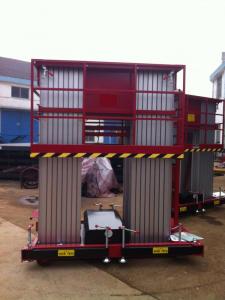Aerial Lift Work Truck
- Loading Port:
- China Main Port
- Payment Terms:
- TT or L/C
- Min Order Qty:
- -
- Supply Capability:
- 10 Sets Per Month m.t./month
OKorder Service Pledge
OKorder Financial Service
You Might Also Like
Details of Aerial Work Truck
Model JQ5050JGK-12 JQ5050JGK-14 JQ5060JGK-16 JQ5060JGK-18
1.Platform
Max. Rated. capacity 200kg(2 persons) 200kg(2 persons) 200kg(2 persons) 200kg(2 persons)
Max. Working Height 12m 14m 16m 18m
10.3m 12.3m 16.5m
Max. Working Radius 6m 6.5m 7m 8m
2.Boom
Upper boom lifting angle 70° 70° 70° 70°
Lower boom lifting angle 70° 70° 70° 70°
Turn around angle 360° 360° 360° 360°
3.Outrigger
Lateral span 2750mm 2750mm 3250mm 3250mm
Outriggers Adjustment Individual adjustment Individual adjustment Individual adjustment Individual adjustment
4.Chassis
Type JX1060TSG23 EQ1071TJ3
Engine power 70KW 67.6KW 88kw
Engine type 4100QBZL 4100QBZL JX493ZLQ3 CY4102BZLQ
Displacement(ml) 3707ml 3856 3856
Crews 5 persons 5 persons 5 persons 3 persons
Dimensions(mm) 6750*1950*2960 7400*1890*3110 7400*2010*3100 8000*2200*3400
Wheel Base (mm) 3300 3360 3800 3856
Wheel trade(front/back)(mm) 1500/1466 1385/1425 1750/1586 1750/1586
Fuel Diesel oil Diesel oil Diesel oil Diesel oil
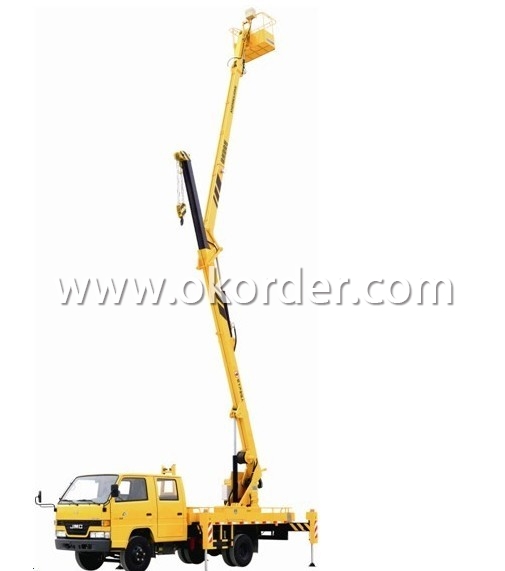
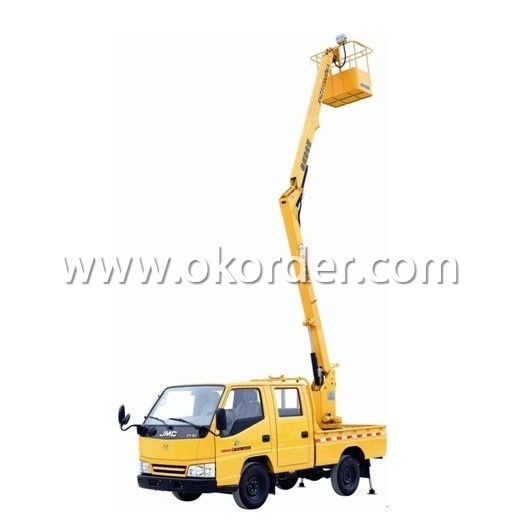
- Q: How to save the elevator accident
- Take escalator safety knowledge Passenger escalator before to keep checking your shoes clothing habits should fasten shoelaces wear skirt drag clothing such as optimum rolled up against the edge of the elevator, comb plate drag or stuck passengers carry baggage increase the risk of escalator accident now need extra or simply choose to take the stairs Escalator self-help hair accident? Every escalator, the stop button and denier hair escalator accident near the button passenger safety awareness should be kept between the first button escalator automatic stop energy efficiency to reduce accident damage Take escalator Cheng Shen fall should use to protect themselves as to avoid the rot slip or fall high neck should hands fingers crossed by strongly impact the dangerous clasped, protect brain neck elbows forward cover bilateral temporal pour knees bending forward as far as possible to protect the chest abdominal viscera side found important discoveries escalator before the sudden fall should the horse stopped footstep simultaneous for help inform passengers will forward near the accident should maintain a stable mood calm reason for avoiding the accident hair running blind hair stampede damage
- Q: How does the construction lift fall without electricity
- This is not calculated according to the distance, it is calculated speed, when the anti-pendant achieves the rated speed, the pendant should be held automatically. It can't go on.
- Q: This question asks for a description of the process of using an electric motor in the context of a building hoist, which is a device used for lifting and lowering materials in construction.
- <p>To use an electric motor with a building hoist, first ensure the hoist is properly installed and secured. Connect the hoist to a power source and check that all safety features are operational. Turn on the motor and test the hoist's movement in both directions to confirm functionality. When lifting materials, ensure they are evenly distributed and securely attached to the hoist. Operate the motor to lift or lower the load, maintaining a steady speed and monitoring for any signs of strain or malfunction. Always follow the manufacturer's guidelines and safety precautions to prevent accidents.</p>
- Q: This question asks if single-rope lifts can experience malfunctions or create safety risks.
- <p>Yes, single-rope lifts can malfunction and pose safety hazards. Like any mechanical system, they are subject to wear and tear, component failure, and human error. Factors such as inadequate maintenance, poor weather conditions, and operator negligence can lead to malfunctions. Safety hazards may include rope breakage, sudden stops, or even derailment. However, modern lifts are equipped with multiple safety features such as emergency brakes and redundant systems to minimize these risks and ensure passenger safety. Regular inspections and adherence to safety protocols are crucial to prevent malfunctions and maintain the safety of single-rope lifts.</p>
- Q: Is it possible to utilize a building hoist for the purpose of lifting small objects?
- <p>Yes, a building hoist can be used for lifting small objects, provided it is safe and the hoist is designed for such loads. Building hoists are typically engineered to handle heavy construction materials, but they can be adapted for smaller loads with proper rigging and safety measures. It's crucial to ensure the weight of the object does not exceed the hoist's capacity and that the hoist is operated by trained personnel following safety protocols to prevent accidents.</p>
- Q: There are two 18-story buildings under construction and tower cranes.
- Do not have a regulation, as long as the benefit construction organization, installation does not install construction lift machine all can. It should be explained that the construction elevator has manned and pure cargo. Note: the installation of the construction elevator is required before the installation of the local quality and technical supervision bureau. After the installation, the safety record is made in the safety record in the use of the safety record.
- Q: What measures should be taken to ensure safety when operating electric-motor powered building hoists?
- <p>When using electric-motor type building hoists, safety precautions include: ensuring all safety devices are in good working order, regularly inspecting and maintaining the hoist, following the manufacturer's guidelines, never overloading the hoist, keeping the hoist and its surroundings clean and free from obstructions, using proper lifting techniques, ensuring the hoist is stable and secure, wearing appropriate personal protective equipment, and training operators on the safe use of the hoist. Adhering to these precautions can significantly reduce the risk of accidents and ensure the safety of workers and the integrity of the construction process.</p>
- Q: Can a building hoist be utilized for moving objects that exceed manual lifting capabilities in terms of height and width?
- <p>Yes, building hoists are designed to move objects that are too tall or too wide for manual lifting. They are engineered to handle heavy and oversized items safely and efficiently, overcoming the limitations of manual labor. Building hoists can be used in construction to lift materials to various floors, and in other industries for moving large equipment or components that are not feasible to lift by hand. They are an essential tool for safely managing the movement of large-scale objects in a controlled manner.</p>
- Q: A building hoist is a piece of equipment used in construction to lift materials and personnel.
- <p>A building hoist, also known as a construction hoist or material hoist, is a temporary lifting device used in the construction industry to transport materials, equipment, and sometimes personnel vertically within a building under construction. It is essential for efficient movement of heavy and bulky items, reducing manual labor and improving safety by minimizing the need for workers to climb ladders or handle heavy loads manually. These hoists are typically installed on the exterior of the building and are used throughout the construction process until the building's permanent elevators are installed and operational.</p>
- Q: What is the need for the sc200/200 construction elevator cable?
- The sc200/200 construction elevator cable line should not be below 120 square. Man's ladder 33KW, 5 * 33 = 165KW The tower is 45KW one, 2 * 45 = 90KW The pressure slag welder is estimated to be 25KW Touch welder 1OKW, 5 * 10 = 50KW Other facilities such as mixer, temporary illumination etc. 30KW Total power: 165 + 90 + 25 + 50 + 30 = 365KW One square cable is 5 minus 7A, 380V is 1KW is equal to 2A. That's 730A 730A divided by 5-7 calculates that the cable line should not be less than 120 square.
1. Manufacturer Overview
| Location | JIANGSU,CHINA |
| Year Established | 1998 |
| Annual Output Value | Above US$10 Million |
| Main Markets | CHINA |
| Company Certifications | ISO 9001:2000; |
2. Manufacturer Certificates
| a) Certification Name | |
| Range | |
| Reference | |
| Validity Period |
3. Manufacturer Capability
| a) Trade Capacity | |
| Nearest Port | Shanghai |
| Export Percentage | 0.6 |
| No.of Employees in Trade Department | 300 People |
| Language Spoken: | English;Chinese; |
| b) Factory Information | |
| Factory Size: | Above25,000square meters |
| No. of Production Lines | Above 1 |
| Contract Manufacturing | OEM Service Offered;Design Service Offered |
| Product Price Range | Average |
Send your message to us
Aerial Lift Work Truck
- Loading Port:
- China Main Port
- Payment Terms:
- TT or L/C
- Min Order Qty:
- -
- Supply Capability:
- 10 Sets Per Month m.t./month
OKorder Service Pledge
OKorder Financial Service
Similar products
Hot products
Hot Searches
Related keywords
